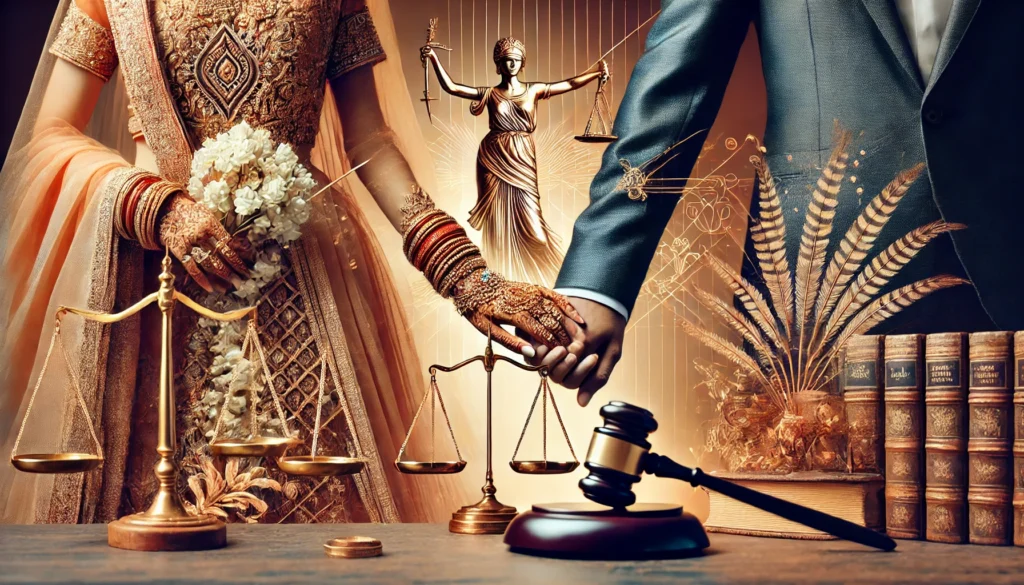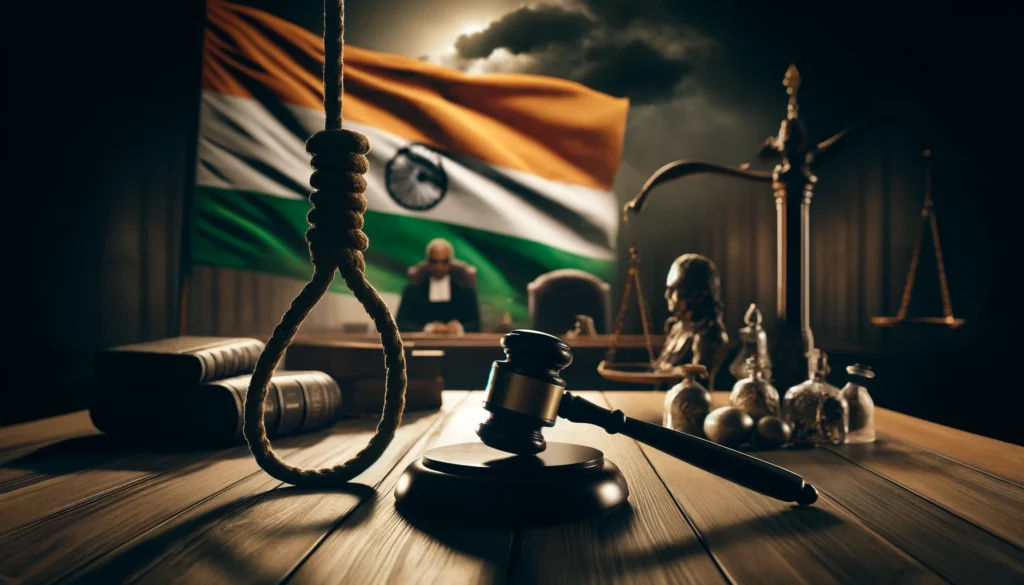Published on: 13th October 2025
Authored by: Jahnavi Srivastava
IMS Law College, Noida, (CCS university)
Court: The Supreme Court of India
Bench: 9- Judge Constitution Bench
Chief Justice of India Justice J.S. Khehar, Justice Jasti Chelameswar, Justice S.A. Bobde, Justice Abdul Nazeer, Justice R.F. Nariman, Justice R.K. Agarwal, Justice Abhay Manohar Sapre, Justice Sanjay Kishan kaul and Justice D.Y. Chandrachud.
Date of Judgement: 24 August 2017
Relevant provision/ Statutes: Article 14, Article 19 and Article 21
Facts of Case:
The case arose when Justice K.S. Puttaswamy (Retd.), a former judge of the Karnataka High Court, who filed a writ petition under Article 32 of the Constitution before the Supreme Court of India that challenge the Aadhar scheme, he also argued that it violated the right to privacy. Aadhar was introduced as a card from which a person can be identified. It was issued as an ‘Unique Identity’ and the authority who issues the card and enrol a person is known as Unique identification authority of India (UDAI). UDAI was established in 2009. Since earlier judgement of Supreme Court in case of M.P. Sharma (1954) the Supreme Court where an eight-judge bench had held that the constitution did not guarantee a right to privacy. The petitioner challenged the constitutional validity of the Aadhar scheme, claiming it violated the fundamental right to privacy of individual. In 2016, when the Aadhar Act was passed, many other petitioners challenged the Aadhar act by filing writ petition. All the writ petitions with the same objective were clubbed together. The Union of India argued that privacy was not a fundamental right under the constitution. The Supreme Court referred the matter to a 9- Judge bench to decide whether the right to privacy is a fundamental right.
Issues:
- Whether the right to privacy is a fundamental right under the Constitution of India?
- If yes, what is the constitutional basis of the right to privacy- does it arise from the Article 21 alone or also from the article 14 and Article 19?
- Whether the earlier judgements of the Supreme court in M.P. Sharma v. Satish Chandra (1954) which held that the Right to Privacy is not a fundamental right- were correctly decided?
- What is the scope and extent of the Right to Privacy in the modern digital era, particularly in relation to data collection and the surveillance by the State?
These issues were critical in deciding whether Indian citizens have a constitutionally protected zone of privacy, especially in the context of increasing digital governance and the Aadhar based identification systems.
Arguments:
Petitioner: The petitioner argued that privacy is essential to personal liberty and the dignity. The petitioner argued that the liberty and the dignity of individual is protected under the Articles 14, Article 19 and Article 21 of the Constitution. It is also closely linked to freedoms guaranteed under Article 14 and Article 19 (such as the freedom of expression, freedom of movement and freedom of association). Rights must evolve with time and technology to protect the individual dignity and autonomy. In the digital age, the Aadhar scheme collects vast amounts of personal data (biometrics, identity). The earlier judgements like M.P. Sharma were based on a formalistic interpretation and also have the outdated views. These earlier decisions should be overruled to align with modern constitutional values and international human rights standards.
Respondent: The respondent that is the Union of India claimed in argument that the Constitution does not explicitly mention the right to privacy and the respondent also kept relied on earlier judgements to argue it was not a fundamental right. Even if privacy exists, it must be subject to reasonable restrictions, especially in matters of national interest, public welfare. The government claimed that the Aadhar scheme was voluntary and used minimal biometric information only for the identification purpose and for the purpose of surveillance.
Judgement:
The 9- Judges Constitution Bench of the Supreme Court delivered the judgement on 24 August 2017. The Supreme Court held that “The Right to Privacy is a Fundamental Right”. The court held that the Right to Privacy is protected as an intrinsic part of the Right to Life and Personal Liberty under Article 21, and also as part of the freedoms guaranteed by Article 14 and Article 19.
The supreme court of India overruled the previous decisions. The Supreme Court overruled the judgement of the case of M.P. Sharma v. Satish Chandra (1954). The decision had previously denied the existence of a constitutional right to privacy.
The Supreme Court of India recognized various dimensions of privacy, including bodily privacy, informational privacy especially in the digital era. The Supreme Court of India also ruled privacy on the decisional autonomy e.g., on marriage, sexual orientation, reproductive rights. The court also emphasized that the Constitution must evolve to protect civil liberties in modern times.
The Supreme Court also applied some limits and the restrictions. Like other fundamental rights, the Right to Privacy is not absolute. The state can impose reasonable restrictions if:
There is a legitimate State interest.
The action is backed by law.
The judgement has broad implications for future legislation and government actions, requiring them to consider the right to privacy and its limitations.
The case established a strong legal basis for protecting individual privacy in India and provides a framework for balancing privacy rights with the other legitimate societal interest. Overall, the case is a landmark decision that has shaped the understanding and the protection of privacy rights in India, influencing various aspects of law, governance and the civil liberties of individuals.
Ratio Decidendi
Ratio decidendi means the legal reasoning or the rule of law. So in this landmark case in 2017 it was recognized the Right to privacy as a fundamental right.
The court held that the Right to Privacy is not an independent right as it was inherent in the Right to Life and the Right to Personal Liberty under the Article 21 of the Indian Constitution.
“Privacy is an intrinsic to freedom, dignity and autonomy as without privacy, the guarantees of life and personal liberty lose their substance.”
Privacy protects personal choices and freedoms such as speech, movement and the association. Thus, it always flows from Article 19 i.e., freedom of speech and expression, movement and the association and the Article 14 i.e., equality and protection against arbitrary action.
The court ruled that the fundamental rights are broad, evolving concepts that are not limited to explicitly mentioned rights in the Constitution. Just like the right to education under Article 21A evolved from Article 21 same the right to Privacy is implied within the Article 14, Article 19 and the Article 21. All the three articles i.e., Article 14,19 and 21 are altogether form the “golden triangle”.
There was the overruling of the earlier judgements which is the case of M.P. Sharma. The bench held that previous rulings that denied the existence of a fundamental rights to privacy were based on a narrow, outdated interpretation and were therefore overruled. The court also held that the Constitution is a living document and it must be interpreted in a manner that protects rights in changing social, economy, political and the technological contexts.
“The rights of individuals must be protected from not just the state, but it also be protected from the non-state actors, especially in the digital age”.
Right to Privacy includes:
Bodily Privacy: this includes the protection against the physical intrusions.
Decisional Autonomy: it includes the freedom to make personal life choices (e.g. marriage, procreation, sexual orientation).
Informational privacy: it includes the right to control personal data and the digital information.
This ratio of the case forms the legal foundation for the future protections against data misuse, surveillance, digital privacy concerns and the personal liberty violations of individuals in India.
Final Decision
In the final decision of the case the Supreme Court of India held that the Right to Privacy is a fundamental right and is always protected under the Part III of the Indian Constitution. It arises from the Article 21 which is Right to life and the Right to Personal Liberty. This Article also gets the strength from Article 14 and the Article 19.
The previous decisions made by the Supreme Court in the case of M.P. Sharma v. Satish Chandra (1954), which held that there is no fundamental right to privacy were specifically overruled.
The final verdict of the Supreme Court in the case were:
The Constitution of India does guarantee a right to privacy.
Privacy is intrinsic to human dignity and personal freedom.
Like the other fundamental rights, the right to privacy is not an absolute and it may also be subject to the reasonable restrictions based on the various aspects such as on the legality which means the existence of a valid law, the legitimate aim of the state and the proportionality (least restrictive means).
Justice Chandrachud for the majority observed that “Privacy is the Constitutional core of the human dignity. K.S. Puttuswamy v. Union of India (2017) 10 SCC 1 (SC) [para 297] ( justice Chandrachud Judgment). This judgement did not strike down Aadhaar, but it laid down the constitutional foundation for the data protection and the lates judicial scrutiny of the Aadhaar Act in 2018.




